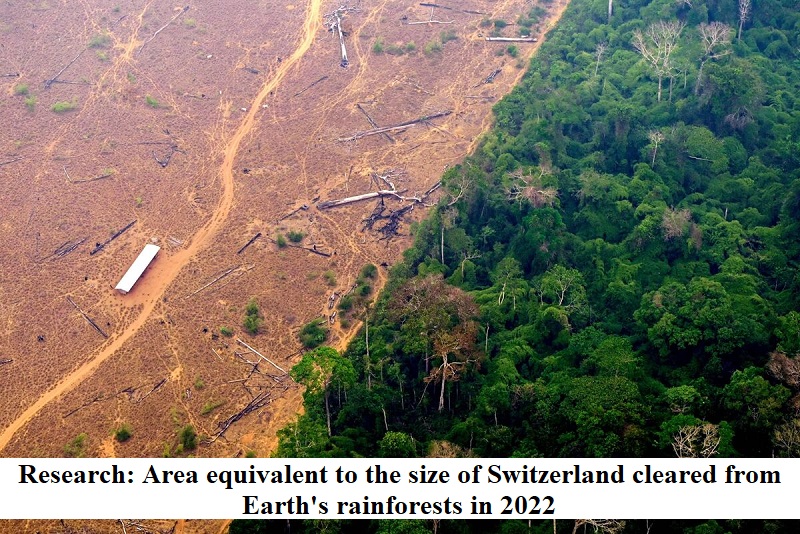
Recent research has unveiled alarming statistics, revealing that an area equivalent to the size of Switzerland was deforested in 2022. This report comes in the wake of various global commitments to halt deforestation by 2030.
The study, conducted by the World Resources Institute’s (WRI) Global Forest Watch, highlighted a significant increase in forest destruction, with a 10% rise compared to the previous year. It estimated that 11 soccer fields of tropical forest were lost every minute due to activities such as agriculture, mining, and commercial ventures.
According to the report, the loss of tropical primary forests in 2022 amounted to 4.1 million hectares. This resulted in the emission of 2.7 gigatonnes (Gt) of carbon dioxide, equivalent to India’s annual fossil fuel emissions.
Brazil and the Democratic Republic of Congo were identified as the top countries for primary forest loss by area in 2022, while nations like Ghana and Bolivia experienced a rapid increase. In contrast, countries such as Indonesia and Malaysia managed to keep primary forest loss rates at record-low levels.
Brazil witnessed a 15% rise in primary forest loss from 2021 to 2022, with the majority occurring in the Amazon. Non-fire-related losses in the Brazilian Amazon reached the highest level since 2005, predominantly due to clear-cut deforestation during the final year of President Jair Bolsonaro’s administration.
Efforts to combat deforestation were seen in the election agenda of President Luiz Inácio Lula da Silva (Lula), who presented a plan to end illegal deforestation in the Amazon after winning the election. However, concerns have been raised that the Amazon is approaching a critical tipping point, potentially transforming into a savannah, which would have severe consequences for addressing the climate crisis.
Despite promises made by governments and companies at various global summits, including the Group of Seven (G7) and COP26, the report emphasized that ambitious pledges lack the necessary information for effective monitoring and implementation, limiting accountability. It highlighted the need for comprehensive maps and adequate monitoring to assess the progress of restoration efforts and deforestation reduction.
Rod Taylor, the global director of WRI’s Forest Program, stated that despite commitments made to combat deforestation and promote sustainable forest management, rapid deforestation and degradation persist due to increasing global demand for resources, compounded by climate change impacts.

Post Your Comments